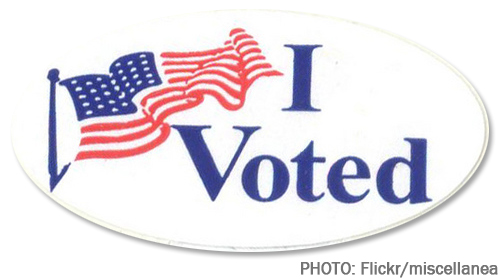 Finally our ballots have arrived! Now we can vote in our own homes, talk over the candidates and the issues with our family, and know that when we drop that ballot in the mail, it will be cast and counted.
Finally our ballots have arrived! Now we can vote in our own homes, talk over the candidates and the issues with our family, and know that when we drop that ballot in the mail, it will be cast and counted.
Think of that — voting made easy. And if you haven’t registered to vote yet in Washington, it’s not too late. Just go to the Snohomish County Auditor’s office at 3000 Rockefeller Avenue in Everett by Monday, Oct. 29. The office is open from 9 a.m. to 5 p.m.. Think of it as an early Halloween present for yourself as a citizen.
These decisions about democracy — when you can register to vote, how you vote, who can vote — don’t just happen. It used to be that you had to register to vote 15 days before an election. Then in 2009, Sen. Paull Shin, D-Edmonds, sponsored a bill to shrink that to eight days before an election. The bill passed, with more than three-fifths support in the Legislature. Of course, it could have been better. We could have just allowed registration on election day, as Idaho and nine other states do. Or we could have just allowed voting with no registration, as North Dakota does. The question for legislators is: Do we want more citizens to vote, or fewer? And the fundamental way to have a voice on that is to make sure you vote!
In Washington, we have chosen legislators who have opened up voting. That is a different path than what is happening in many other states around the country. Some state legislatures have acted to prevent certain citizens from voting. Florida and Georgia, among others, require state-issued photo identification. Ohio tried to end early voting. Almost all states, with the exception of Washington and Oregon, expect people to stand in line, maybe for hours, in order to vote at their polling place, or to finally just walk away in frustration.
Washington’s choices have enabled a lot more citizens to vote in our state. In 2010, we had the second highest proportion of citizens who voted. But that’s not really a lot to brag about, when less than 55 percent of eligible citizens voted. Maybe the deluge of campaign ads is part of the problem. People get tired of the negativity and don’t bother to vote.
Non-voting also says something about our divorce from our own government and the belief that the voting doesn’t make a difference. We don’t have to accept that divorce. The first thing to do to save this marriage is to vote!
But what if you are a citizen who can’t vote? There are about 40,000 of our fellow citizens statewide in this predicament. That’s because they are either convicted of a crime and in jail, or they are on probation or parole. That’s about 40,000 citizens in all — twice as many who voted in Everett’s election for mayor in 2009.
You might argue that criminals and ex-cons should be denied the right to vote. But I thought that prison, probation, and parole were a road to rehabilitation, not continued punishment and marginalization. What better way to push a person away from society than deny him the right to vote.
There are states in which all citizens, those free and those incarcerated, are eligible to vote. One is Vermont. Of course, Vermont was also the first state to ban slavery. In Texas, almost a half a million people, in jail or having done their time, cannot vote. By proportion of citizens ruled ineligible to vote, Georgia is tops, and closely followed by Louisiana, Alaska, Texas, Arkansas, Alabama, Mississippi, Missouri, Idaho, Arizona, Florida, Tennessee, Oklahoma… Disproportionately, those barred from voting are African American men and other people of color. That’s why our system of prison and post-incarceration discrimination has been called “the new Jim Crow.”
There is no need for Washington to follow the Jim Crow path in excluding voters. So one thing to consider is, after you have voted in this election, talk to your legislators about insuring that all citizens can vote, even those with whom you might not agree, those you might not like, those who might talk and look different than you, and, in fact, even those on parole and probation, and those in prison. That would be a democratic thing to do. But first of all, vote!
From the Everett Herald
More To Read
May 2, 2024
Baby Bonds: A Step Toward Racial and Economic Equity
The Washington Future Fund would bring this innovative, anti-racist policy to the Evergreen State
May 1, 2024
Laws Targeting LGBTQ Youth Aren’t Just Bad for Kids – They’re Bad For The Economy
The harm done by anti-LGBTQ laws expands so much further than queer children and teens
April 26, 2024
What is WA Cares and Why Does It Matter for Washingtonians?
We need to defend this important policy from billionaires looking to save a buck
